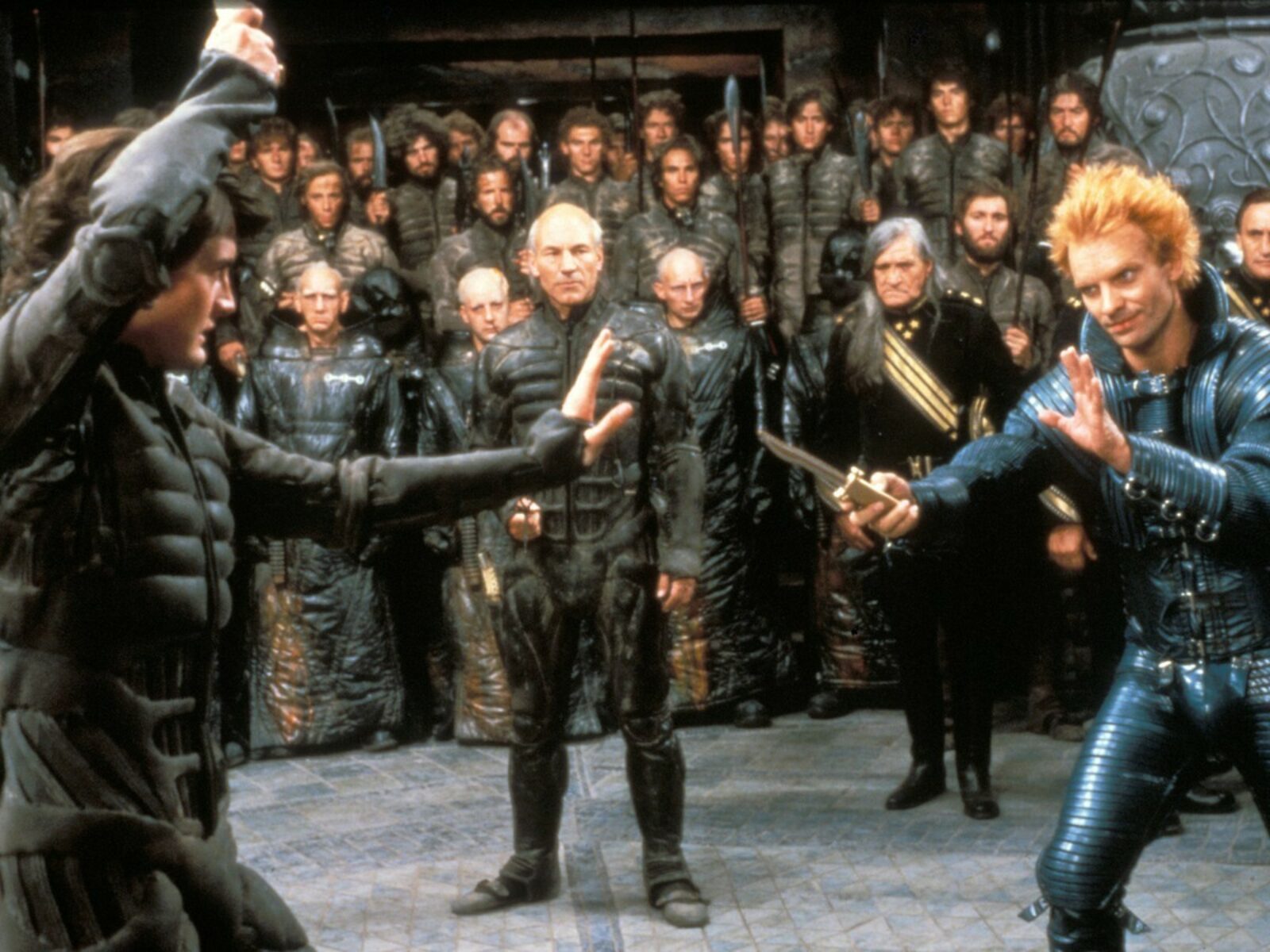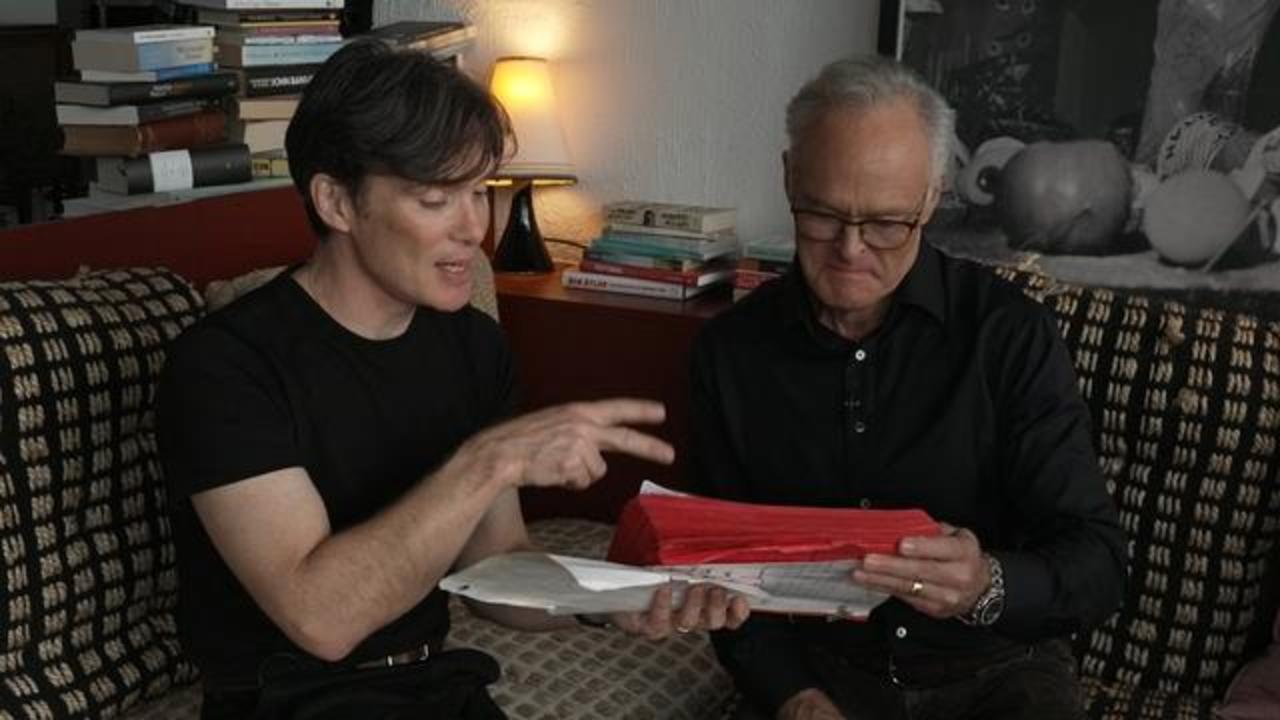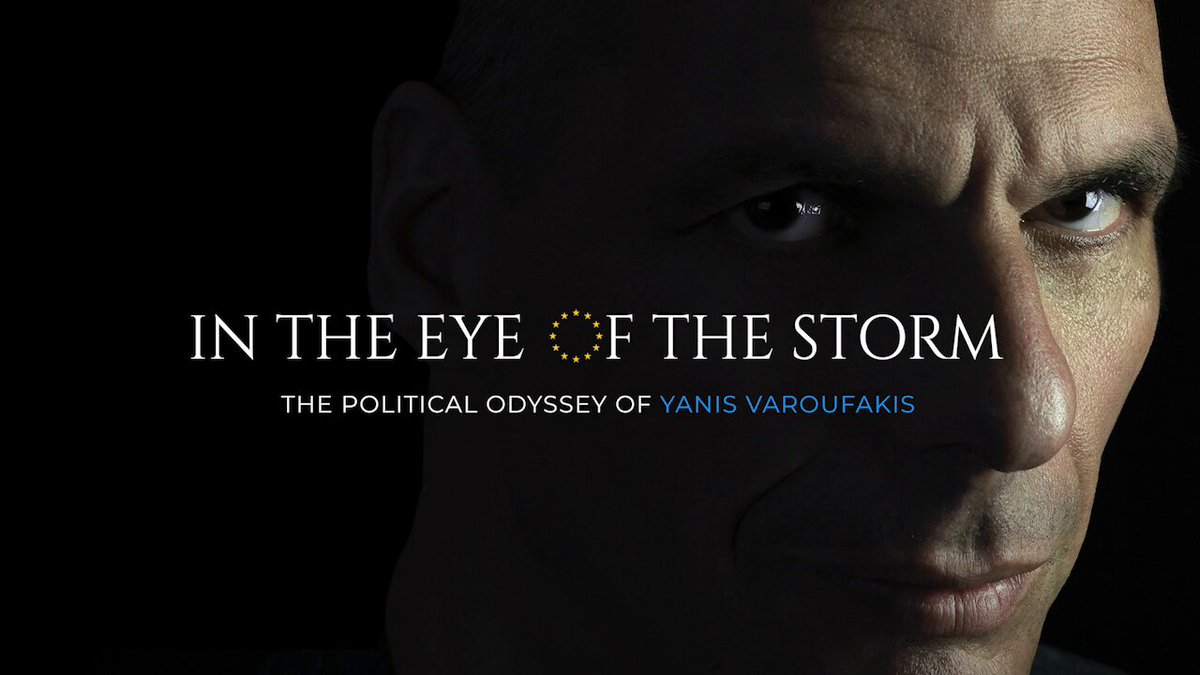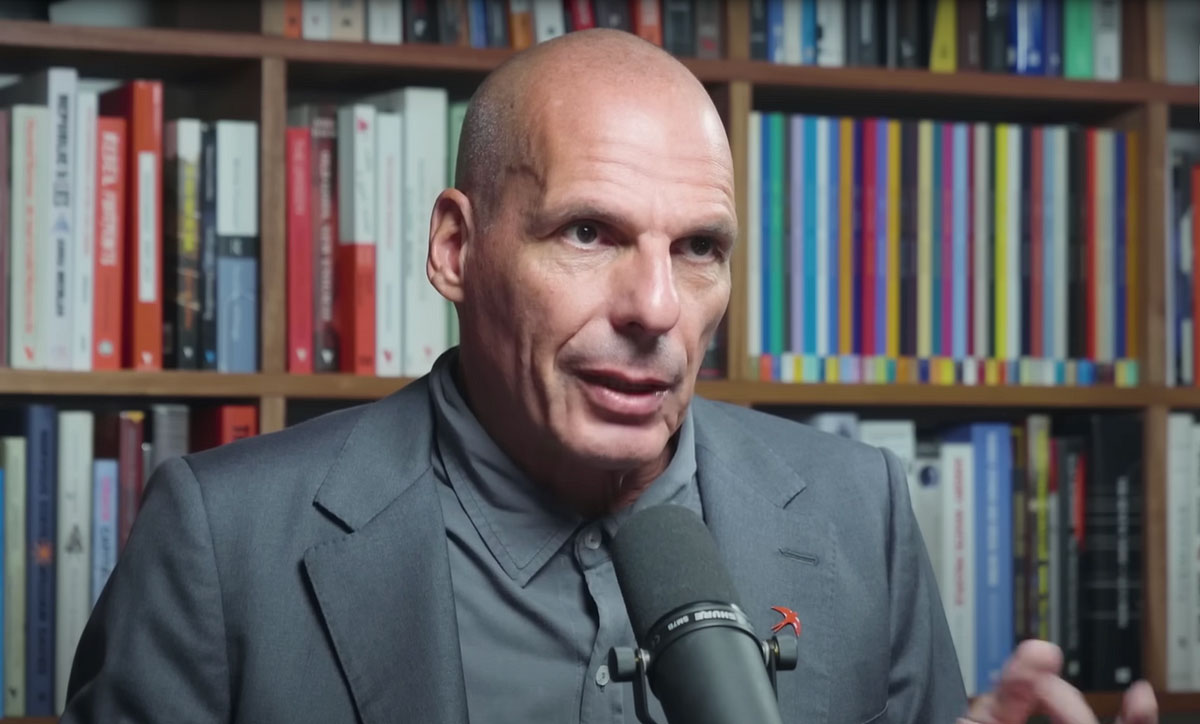Crossroads of Empire: John Gray’s Vision of Political Realignment and the Fate of the West
John Gray, the prolific political philosopher, has long been a figure of intrigue and controversy. Over the past half-century, Gray has navigated the intellectual currents of political thought, never comfortably fitting into a single ideological box. His ability to provoke thought across the political spectrum is perhaps best encapsulated in his latest work, which examines the changing fortunes of the West through a prism of revived historical paradigms: feudalism, religious orthodoxy, and ultra-nationalism.
Gray’s central thesis challenges the modern consensus on growth and progress, suggesting that neither are guaranteed nor inevitable. This perspective underpins his broader critique of globalization and liberal capitalism, positions that have brought him both acclaim and criticism. His skepticism towards the West’s commitment to these ideologies has proven prescient, with his early critiques of globalization and the pitfalls of military occupations in Afghanistan and Iraq now widely acknowledged as accurate.
In his recent book, The New Leviathans: Thoughts After Liberalism, Gray turns his attention to what he perceives as the declining trajectory of Western dominance, proposing that the future may see a return to older forms of social organization and governance. This outlook is deeply intertwined with his critique of contemporary liberal policies, which he argues have inadvertently fueled the rise of populism. Gray sees populism not as an aberration but as a direct backlash against the social disruptions caused by liberal economic and cultural policies.
Central to Gray’s analysis is the idea that Western liberalism, with its emphasis on individual autonomy and economic deregulation, has reached a critical juncture. He suggests that the crises facing the West today are symptomatic of deeper ideological failures. These include a misplaced faith in the universality of liberal democracy and capitalism, which, in his view, have led to increasing social fragmentation and economic inequality. Gray argues that the responses to these crises, from both the political left and right, have been largely inadequate, mired in outdated modes of thinking that fail to address the root causes of contemporary malaise.
Moreover, Gray posits that the current moment represents a crossroads for the West, one that requires a fundamental reevaluation of its values and political systems. He envisions a future in which the West might see a resurgence of forms of social organization that have historically been associated with pre-modern societies. This includes a revival of feudalistic structures, a return to more orthodox religious practices, and a strengthening of ultra-nationalist sentiments. According to Gray, these developments are not necessarily regressive but reflect a complex interplay of historical, cultural, and economic forces that challenge the linear conception of history as a progression towards liberal democracy and capitalism.
Gray’s critique extends beyond mere political analysis, delving into the philosophical underpinnings of Western thought. He challenges the Enlightenment belief in reason and progress, suggesting that such ideals have led to an overconfidence in the ability of liberal democracy and capitalism to address the fundamental challenges of human existence. Instead, Gray calls for a more nuanced understanding of human nature and history, one that recognizes the limitations of rationalism and the inevitability of cyclical patterns of social and political organization.
In conclusion, John Gray’s work represents a provocative challenge to the conventional wisdom regarding the West’s past, present, and future. By drawing on a wide array of historical, philosophical, and political insights, Gray offers a compelling critique of the assumptions that have shaped Western thought for centuries. His analysis suggests that the West may be on the cusp of a profound transformation, one that could see the resurgence of older forms of social organization and governance. Whether one agrees with Gray’s conclusions or not, his work undeniably provides a rich source of reflection on the complexities of contemporary political life and the unpredictable nature of historical change.
* * *
Aaron Bastani’s interview with John Gray covers a broad range of topics, delving into his critiques of globalization, liberalism, and the current political and economic trajectory of the West. Here are the key points discussed:
• Critique of Globalization and Liberalism: Gray criticized the optimistic belief in inevitable globalization and liberal democracy, arguing that these trends are neither inevitable nor universally beneficial. His skepticism towards globalization, which he expressed in his earlier work, was met with widespread criticism at the time but has since been vindicated by events.
• Skepticism Towards Progress: He challenges the notion of inevitable progress and growth, suggesting that history is cyclical rather than linear, and that we may be returning to older forms of living and governance, such as feudalism, ultra-nationalism, and religious orthodoxy.
• Critique of Western Policies and Populism: Gray links the rise of populism to the social disruptions caused by policies from liberal elites, arguing they fail to see the connection between their actions and the political blowback they receive.
Views on the Future of the West: He predicts a shift away from the ideologies and structures that have dominated recent decades, suggesting a return to more traditional, possibly pre-modern, forms of social organization.
• The Role of Religion and Nationalism: Contrary to the expectations of liberal universalism, Gray highlights the resurgence of nationalism and religion as central forces in global politics, underscoring their role in the collapse of communism and the ongoing resistance to liberal hegemony.
• Economic Critiques: Gray criticizes the current economic system, predicting further fragmentation and the potential for a return to more localized, less globalized economic models. He sees the current trend towards deglobalization as an acknowledgment of the failures of the globalizing project.
• Criticism of the European Union (EU): He views the EU as a flawed project, arguing that it is designed to prevent the emergence of socialism or moderate social democracy, favoring a neoliberal economic model instead.
• Hyper-Liberal Ideology and its Consequences: Gray critiques the rise of what he calls “hyper-liberal ideology,” seeing it as an extension of Western liberalism that paradoxically seeks to undermine Western values. He associates it with the elite’s attempt to secure power amidst capitalism’s failures.
• Predictions for American Politics: Gray foresees a legitimation crisis in the United States, with increasing political polarization and a potential inward turn, reducing its global influence and commitments.
• Views on Political and Ethical Choices: He discusses the inevitability of tragic choices in politics, where any action or inaction involves irreparable losses or wrongs, challenging the notion that perfect solutions exist for societal problems.
Gray’s perspective offers a critical and often contrarian view of contemporary political and economic trends, questioning the assumptions underlying liberal democracy, globalization, and the notion of inevitable progress.
* * *
The nonsense of centrism
John Gray’s critique of centrism is multifaceted and reflects his broader skepticism towards dominant political ideologies and narratives. When he refers to the “nonsense of centrism,” he is critiquing a political stance that positions itself as a moderate or middle ground between the perceived extremes of left and right politics. Here are the key aspects of Gray’s critique:
• Centrism as a Hollow Ideology: Gray views centrism not as a coherent ideology with substantive policies but as a political stance that often lacks depth and fails to address the underlying issues facing society. Centrists claim to offer pragmatic solutions, yet their policies may be disconnected from the realities of widespread inequality, social fragmentation, and the dissatisfaction of large segments of the population.
• Failure to Address Structural Problems: Centrism, in Gray’s view, often represents an attempt to maintain the status quo by making minor adjustments rather than tackling the root causes of economic and social issues. This approach can be seen as inadequate in times of significant upheaval or when faced with systemic challenges, such as those brought about by globalization, technological change, and environmental crises.
• The Illusion of a Non-ideological Stance: Centrists often claim to be above the fray of ideological battles, positioning themselves as rational and evidence-based arbiters. However, Gray would argue that this is an illusion and that centrism itself is ideologically driven, promoting a particular vision of society that upholds existing power structures and economic models.
• Disconnection from Popular Sentiments: Gray suggests that centrism is often out of touch with the concerns and aspirations of ordinary people. By focusing on a narrow band of policies deemed acceptable by political and economic elites, centrists can alienate large portions of the electorate who feel their voices and concerns are not being heard.
• Convergence of Political Parties: One consequence of centrism, according to Gray, is the convergence of major political parties around a set of neoliberal policies, reducing the diversity of political options available to voters. This convergence can lead to voter apathy and disillusionment with the political process, as significant differences between parties become harder to discern.
• Populism as a Reaction to Centrism: Gray links the rise of populism, in part, to the failures of centrism. Populist movements can be seen as a backlash against the perceived elitism and ineffectiveness of centrist policies, tapping into feelings of neglect and disenfranchisement among the public.
John Gray’s critique of centrism is that it fails to adequately address the complex challenges facing modern societies, often serves to preserve the status quo at the expense of meaningful change, and can contribute to political polarization and the rise of populist movements by neglecting the concerns of large segments of the population.
* * *
How the UK is facing Collapse, according to John Gray?
John Gray’s insights on the potential for the UK’s collapse are interwoven with his broader critiques of globalization, liberal ideology, and the political and economic trajectories of Western societies. While he doesn’t predict a literal collapse in the sense of a sudden disintegration, his analysis suggests a series of challenges and transformations that could fundamentally alter the UK’s future stability and prosperity. Key themes from Gray’s perspective include:
• Economic Fragility and Inequality: Gray highlights the UK’s vulnerability due to its highly financialized economy and dependence on global financial markets. He suggests that the economic model adopted by the UK, heavily reliant on finance and service industries, is susceptible to global economic shocks and crises, leading to increased inequality and social fragmentation.
• Political Disintegration and Legitimation Crisis: He argues that the UK is experiencing a crisis of legitimacy, where increasing segments of the population no longer feel represented by the political establishment. This is exacerbated by the polarization over issues like Brexit and the rise of nationalist sentiments in Scotland and Northern Ireland, threatening the unity of the United Kingdom.
• Impact of Brexit: Gray discusses Brexit as a symptom of deeper societal divides and an example of the elite’s failure to anticipate or understand the consequences of their policies. The process of leaving the EU has exposed and intensified existing political and economic vulnerabilities, including challenges to the UK’s global standing and economic stability.
• Social and Cultural Divisions: The rise of what Gray terms “hyper-liberal ideology” contributes to social and cultural divisions, alienating large portions of the population who do not identify with elite-driven narratives on issues like identity, nationalism, and sovereignty. This ideological divide is seen as deepening the UK’s internal conflicts.
• Deglobalization and the Return to Nationalism: As part of a broader global trend, the UK is facing the challenges of deglobalization, with potential shifts towards more localized economies and the resurgence of nationalism. Gray suggests this could lead to a reevaluation of the UK’s economic model and its place in the world.
• Challenges to Public Services and Welfare: The UK’s public services and welfare state face significant pressures from economic austerity, demographic changes, and political decisions that prioritize market-driven approaches over social cohesion and equity.
John Gray’s analysis implies that the UK is at a crossroads, facing significant economic, political, and social challenges that could lead to a profound transformation or “collapse” of its current societal model. He suggests that addressing these challenges will require rethinking deeply held assumptions about progress, governance, and the role of the state in regulating the economy and ensuring social welfare.
* * *
Why “Dune” is the most worthwhile work of science fiction
John Gray’s remarks on “Dune” focus on several key aspects that highlight its distinction and depth as a work of science fiction. Here are the specific points he made:
• Feudal Future: Gray appreciates “Dune” for its depiction of a “feudal future,” a concept that stands out within the science fiction genre. Unlike many other sci-fi narratives that envision a future dominated by advanced technology and egalitarian societies, “Dune” imagines a future where society has regressed or evolved into a neo-feudal state. This setting is not only unique but also serves as a critique of the assumption that human society will inevitably progress toward more democratic forms of governance.
• Complex Social Forms: The novel’s exploration of complex social forms, including loyalty, hierarchy, and religious obligations, resonates with Gray’s interests in the diversity of human social organization and the persistence of pre-modern structures in the future. “Dune” presents a society where these elements are central, challenging the notion that they will be erased by future advancements.
• Richness of the Novel’s Universe: Gray highlights the richness of the novel’s universe, which includes elements of shamanism, divination, and practices reminiscent of Roman and pre-feudal societies. This complexity makes “Dune” much more interesting to him than other science fiction works that might adhere more strictly to a linear progression of history or a simplistic view of the future.
• Critique of Progress Narratives: Implicit in Gray’s appreciation for “Dune” is a critique of progress narratives common in both science fiction and broader cultural expectations. By presenting a future that revisits feudalism and integrates ancient practices into its social fabric, “Dune” aligns with Gray’s skepticism about the inevitability of progress and the desirability of a future dominated by liberal, technocratic, or homogeneous global cultures.
• Science Fiction as a Lens on the Present: Finally, Gray values “Dune” for its ability to use the science fiction genre as a lens to view and critique the present. The novel’s engagement with themes of power, ecology, and society offers insights into contemporary issues, making it a valuable work for understanding human nature and the potential paths of our social and political evolution.
John Gray’s remarks on “Dune” emphasize its unique contribution to science fiction through its exploration of a feudal future, complex social dynamics, and its critique of progress narratives, making it a work that resonates with his own philosophical inquiries.
* * *
Criticism of the European Union (EU)
John Gray’s criticism of the European Union (EU) reflects deep concerns about the structural and ideological underpinnings of the organization. He views the EU as embodying a particular economic and political philosophy that prioritizes market liberalization, deregulation, and the interests of capital over those of labor and broader social welfare. This perspective suggests that the EU, despite its claims of promoting integration and cooperation among European nations, fundamentally serves to entrench a neoliberal economic model. Here’s Gray’s critique:
• Neoliberal Economic Policies: Gray argues that the EU has been instrumental in promoting and enforcing neoliberal economic policies across its member states. These policies include the free movement of capital, strict fiscal austerity measures, and the privatization of public services. While these measures are often justified in the name of efficiency and economic growth, Gray contends that they disproportionately benefit the wealthy and corporate interests at the expense of the working class and the public sector.
• Constraints on National Economic Policies: One of Gray’s critical points is that the EU’s framework significantly limits the ability of member states to pursue independent economic policies, especially those that might veer towards socialism or social democracy. For example, the EU’s economic governance mechanisms, such as the Stability and Growth Pact, impose strict fiscal rules that discourage expansive public spending or investment in social services. This, according to Gray, stifles the possibility of member states adopting more redistributive economic models that could address inequality and social needs more effectively.
• Democratic Deficit: Gray also touches on the issue of the EU’s so-called democratic deficit, where decision-making processes are perceived as being removed from the direct influence or control of the citizens of member states. This criticism is tied to the economic concerns, as the direction of EU policy—especially in economic matters—is often determined by unelected officials in Brussels or influenced heavily by corporate lobbying. The result is a governance structure that, in Gray’s view, prioritizes neoliberal orthodoxy over democratic accountability and the diverse economic preferences of its member populations.
• Resistance to Alternative Economic Models: The EU’s commitment to a particular economic paradigm means that alternative models, which might emphasize public welfare, environmental sustainability, or reduced income inequality, face structural and ideological barriers. Countries that have sought to challenge or reform the neoliberal consensus within the EU, either through proposed policy changes or through public referenda, have often been met with resistance from EU institutions. This, Gray argues, reveals a fundamental inflexibility within the EU to accommodate diverse economic philosophies, particularly those that challenge the primacy of the market.
• Impact on Social Democracy: Gray sees the EU’s influence as being particularly detrimental to the prospects of social democracy within Europe. By embedding neoliberal policies at the supranational level, the EU effectively narrows the policy space available for social democratic alternatives that seek to balance the market’s efficiencies with social equity and public welfare. This has implications not only for domestic politics within member states but also for the broader ideological landscape of Europe, where social democratic parties have historically played a significant role.
John Gray’s criticism of the EU centers on its role in cementing a neoliberal economic order that sidelines social democratic principles and limits the autonomy of member states to pursue alternative economic policies. His critique reflects broader debates about the nature of European integration, the balance between market freedoms and social protection, and the democratic legitimacy of EU institutions.
* * *
Predictions for American Politics
John Gray’s predictions for American politics involve a deepening legitimation crisis, characterized by increasing political polarization, a potential inward turn, and a consequent reduction in the United States’ global influence and commitments. This perspective is grounded in his broader critique of contemporary political systems and his skepticism towards the sustainability of current political and economic models. Here’s Gray’s outlook:
• Deepening Political Polarization: Gray anticipates that political polarization in the United States will continue to intensify, with the country increasingly divided along ideological, cultural, and economic lines. This division is not just a matter of differing opinions but reflects a fundamental rift in how different segments of the population perceive reality, the role of government, and the direction the country should take. Such polarization challenges the very basis of consensus politics and undermines the possibility of effective governance.
• Legitimation Crisis: At the heart of Gray’s predictions is a legitimation crisis, wherein a significant portion of the American populace no longer sees the federal government as legitimate or representative of their interests and values. This crisis is exacerbated by controversies over election integrity, the role of media, and deep-seated disagreements over issues such as immigration, gun control, and healthcare. The result is a growing distrust in political institutions and leaders, eroding the foundational trust necessary for a democratic society to function effectively.
• Inward Turn and Isolationism: In response to internal divisions and the challenges of maintaining its role as a global superpower, Gray foresees the United States taking a more isolationist stance. This inward turn would manifest in a reluctance to engage in foreign conflicts, a reevaluation of international commitments, and a focus on domestic issues. While not isolationist in the strictest sense, this shift would represent a significant change from the post-World War II era of active American leadership in global affairs.
• Reduction in Global Influence: A consequence of this inward turn would be a reduction in the United States’ global influence. As the country becomes more preoccupied with its internal divisions and challenges, its ability and willingness to project power and influence abroad may diminish. This could lead to a reshaping of international alliances, a vacuum of leadership in global governance, and an opportunity for other powers, such as China and Russia, to assert their influence more strongly.
• Implications for Democracy: Gray’s predictions also touch on the implications for democracy itself. The legitimation crisis and polarization could lead to challenges in conducting fair and accepted elections, governing effectively, and addressing critical issues. The erosion of democratic norms and institutions could result in a more authoritarian style of governance, as leaders may seek to bypass traditional checks and balances in an effort to implement their agendas amidst deadlock and division.
• Societal and Economic Consequences: Beyond politics, Gray suggests that the United States will face significant societal and economic consequences as a result of these trends. Economic inequality, social unrest, and a fraying social fabric could become more pronounced, challenging the country’s ability to maintain cohesion and prosperity.
John Gray’s vision of the future of American politics is one of increasing challenges to its democratic institutions, societal cohesion, and global standing. His predictions reflect concerns about the sustainability of the current political and economic paradigms in the face of deepening divisions and a potential retreat from the global stage.
* * *
Why the current system could be considered worse than feudalism
John Gray’s analysis suggests that the current system could be considered worse than feudalism in several respects, based on his critique of contemporary political and economic structures.
• Economic Inequality and Concentration of Power: Modern neoliberal economies have led to unprecedented levels of economic inequality, with wealth and power concentrated in the hands of a few. This concentration is facilitated and exacerbated by global financial systems and corporate dominance. Unlike feudalism, where obligations and protections were enforced between lords and vassals, today’s economic system often lacks mechanisms to ensure the welfare of those at the bottom of the economic hierarchy.
• Loss of Community and Stability: Feudal societies, despite their hierarchical nature, provided a sense of place, role, and stability for most individuals within the system. In contrast, the modern globalized economy has eroded traditional communities and social bonds, leaving individuals feeling alienated and disconnected. The lack of social cohesion and community support networks contributes to a sense of isolation and insecurity that was less prevalent in feudal times.
• Environmental Degradation: The relentless pursuit of economic growth and consumption in the current system has led to environmental degradation on a scale unimaginable in feudal times. Gray might argue that the exploitation of natural resources without regard to ecological balance or sustainability is a fundamental flaw of the modern economic model, posing existential risks that did not exist in the feudal era.
• Technological Displacement and Uncertainty: The rapid pace of technological change in the modern era has led to job displacement and a sense of uncertainty about the future. While technological advancements have brought many benefits, they also pose challenges to employment and social stability that feudal societies did not face. The anxiety and insecurity generated by these changes can be seen as a negative aspect of the modern system.
• Democratic Deficits and Governance: Modern democracies face significant challenges, including political polarization, the influence of money in politics, and a perceived detachment of elected officials from the needs of their constituents. These democratic deficits can lead to governance that is less responsive and accountable than the idealized vision of democracy, potentially making modern systems less effective at addressing the needs of the populace than the more straightforward governance structures of feudal times.
• Crisis of Legitimation: Gray predicts a legitimation crisis in modern societies, where increasing segments of the population no longer see the political and economic system as legitimate or representative of their interests. This crisis is exacerbated by the aforementioned issues of inequality, alienation, and democratic deficits, contributing to a sense of disillusionment and disenfranchisement that may be considered worse than the more stable, if rigid, social order of feudalism.
John Gray’s critique suggests that the current system, with its profound economic inequalities, loss of community, environmental degradation, technological disruptions, democratic deficits, and a looming crisis of legitimation, could be seen as offering a less stable and equitable form of social organization than feudalism, despite the latter’s obvious limitations and inequities.
* * *
The U.S. opioid epidemic
John Gray’s discussion about the U.S. opioid epidemic is framed within his broader critique of contemporary society’s failures and the consequences of neoliberal policies. While he does not dedicate a specific section solely to discussing the opioid crisis, his analysis of societal issues provides a context for understanding the epidemic as part of larger social and economic problems. Here’s how Gray’s perspectives relate to the opioid epidemic:
• Symptom of Social Malaise: Gray might argue that the opioid epidemic is a symptom of deeper social and economic malaise, including the disintegration of communities, the erosion of stable jobs, and the neglect of public health and welfare systems. It reflects a society where many people feel disconnected, disenfranchised, and without hope for the future.
• Failure of the Neoliberal Model: The crisis can be seen as a consequence of the neoliberal economic model, which prioritizes market freedom and individual responsibility over social welfare and community support. This model has led to vast inequalities and a healthcare system that is often more focused on profit than on patient care, contributing to the widespread availability and prescription of addictive painkillers.
• Cultural and Political Neglect: The opioid epidemic underscores a cultural and political neglect of the working class and rural populations, who have been disproportionately affected by economic changes such as deindustrialization. Gray’s analysis would suggest that the epidemic is partly the result of political choices that have marginalized large segments of the population, leaving them vulnerable to addiction as a form of escape from economic and social despair.
• Critique of Progress Narratives: Gray’s skepticism towards narratives of inevitable progress and improvement is relevant here. The opioid crisis challenges the idea that technological and economic advancements automatically lead to better lives for all. Instead, it reveals how progress can have uneven and often devastating impacts on different communities.
• The Role of Big Pharma: While Gray may not discuss this explicitly in the context of the opioid epidemic, his critique of corporate influence and the commodification of life under neoliberal capitalism is relevant. The aggressive marketing of opioids by pharmaceutical companies, driven by profit motives with insufficient regard for public health, exemplifies the ethical failures of a system that allows corporate interests to override societal well-being.
• Response to the Crisis: In line with Gray’s views on the limitations of current political and economic systems to address complex social issues, the opioid epidemic represents a challenge that requires more than just market-based solutions or individual interventions. It calls for a comprehensive societal response, including rethinking healthcare, social support systems, and the economic model that underpins American society.
Overall, while John Gray does not specifically focus on the opioid epidemic, his critiques of modern capitalism, neoliberal policies, and the neglect of social welfare provide a framework for understanding the crisis as part of broader societal failures.





